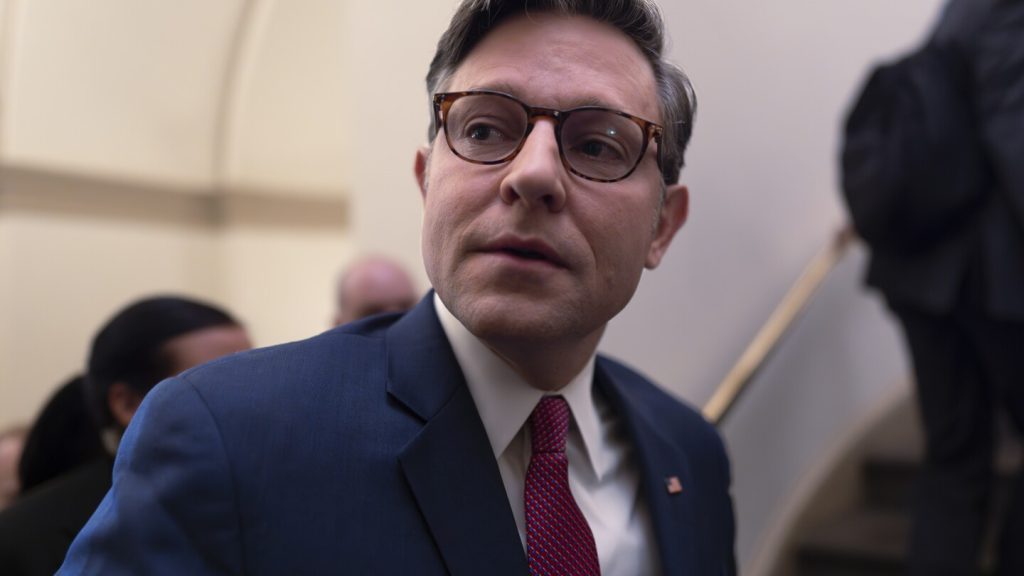House Speaker Mike Johnson is determined to require proof of citizenship for new voters as part of a bill to avoid a potential government shutdown, despite strong opposition from Democrats and some Republicans. The measure aims to address election security concerns, although research shows that voting by non-citizens is rare. Johnson believes that a few thousand illegal votes could significantly impact election outcomes, emphasizing the importance of safeguarding the electoral process. The House previously approved a bill with the citizenship proof mandate in July.
The stopgap spending bill, which includes a six-month extension of federal funding to prevent a shutdown, faced a narrow vote of 209-206 to proceed. However, Democrats are pushing for a shorter-term extension to allow the current Congress to set full-year spending levels for fiscal year 2025. They also oppose the proof of citizenship mandate, arguing that states already have adequate safeguards to verify voter eligibility. Senate Majority Leader Chuck Schumer criticized the bill, urging bipartisan collaboration on a package that can pass both chambers.
Some House Republicans have also expressed opposition to the bill, citing concerns about funding levels and the preference for individual appropriations bills. Representative Cory Mills from Florida emphasized the importance of election integrity and rejected the bill, while others criticized it as a Democratic budget proposal. Despite potential Republican opposition, the party can only afford to lose four votes if all Democrats vote against the bill. Former President Donald Trump suggested a government shutdown if election security assurances are not met, but Senate Republican leader Mitch McConnell dismissed the idea.
House Republicans strategically reintroduced the proof of citizenship requirement to force Democrats in competitive districts to take another vote on the issue. During closed-door discussions, lawmakers emphasized the significance of the mandate and the need to address election security. Representative Ralph Norman from South Carolina stressed the importance of the issue and stated that Johnson was committed to holding the vote regardless of the outcome. The focus during the debate on the spending measure centered on the SAVE Act, with Republicans linking increased migration under the Biden administration to potential voter fraud.
The debate over the proof of citizenship requirement highlighted contrasting views between Republicans and Democrats. Republicans argued for the necessity of proving one’s identity to vote, while Democrats warned against disenfranchising Americans who may not have the required documents readily available. Despite the strong opposition and uncertainty surrounding the bill’s passage in the House and Senate, Johnson remains determined to push for the citizenship proof mandate. The potential impact on future elections and the ongoing concerns about election security continue to drive the debate within Congress.


